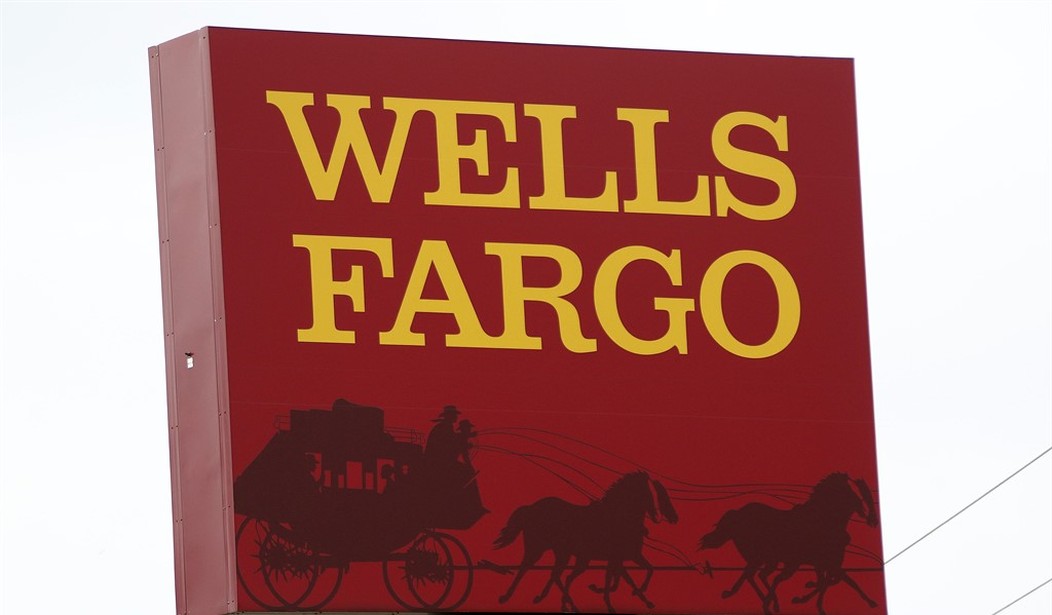Wells Fargo has created yet another scandal for itself, and another invitation for regulators to crack down on the banking giant. Less than a year ago, Wells Fargo laid off five thousand workers over massive fraud involving the unauthorized opening of more than two million accounts. Right on the heels of that scandal comes news that the company illegally signed up almost a half-million car loan customers for insurance, forcing them to pay up or get their cars repossessed. Customers have launched a class-action lawsuit accusing Wells Fargo of racketeering:
Lawsuit says Wells Fargo auto insurance charges were a fraud from CNBC.
A new lawsuit accuses Wells Fargo of racketeering violations and fraud after the bank admitted to charging several hundred thousand borrowers for auto insurance they did not ask for or need, causing many delinquencies. …
Wells Fargo said late last week it would refund about $80 million to an estimated 570,000 customers who were wrongly charged for auto insurance, including roughly 20,000 people whose vehicles were repossessed.
The San Francisco-based bank made its announcement less than three hours after The New York Times wrote about an internal report prepared for executives that detailed improper charges.
It’s not the first time that Wells Fargo has been connected to potential insurance fraud. In December, the Times also reported that bank employees had been opening up unauthorized life insurance policies through Prudential, its partner for low-cost insurance. An internal investigation by the insurer turned up whistleblowers who claimed they had been punished for attempting to bring the fraud to the attention of Prudential executives:
Since bankers are not licensed to sell insurance, Wells Fargo employees were encouraged, without discussing specific terms, to steer customers to either a self-service kiosk in bank branches or a website on which they could sign up for MyTerm, a policy that does not require applicants to take a medical exam. Bankers who sold the product got credit toward their steep quarterly sales quotas.
Some Wells Fargo bankers appear to have signed people up for MyTerm without telling them, according to the three whistle-blowers from Prudential. In some cases, bankers opened MyTerm policies, closed them after a month or two and then promptly reopened them to bolster their sales numbers, the evidence in the lawsuit suggests. …
Ms. Broderick and two of her colleagues, Darron Smith and Thomas Schreck, filed a wrongful termination suit against Prudential on Tuesday. They say they were fired in November for trying to escalate attention internally to their discoveries about conduct at Wells Fargo. Prudential said on Friday that the three were fired for “appropriate and legitimate reasons” that had nothing to do with Wells Fargo.
In this case, the fraud took a different form. Borrowers on car loans are required to carry their own insurance and to provide proof of it to their lender. If borrowers do not maintain their insurance, lenders will take out basic insurance to protect the value of the collateral and charge customers for the premiums. According to the complaints — and apparently confirmed by Wells Fargo’s internal investigation — bank employees simply opened up insurance policies anyway without informing the customers. When they didn’t pay because they had no knowledge of the policies, the customers were sent to collections or in some cases had their cars repossessed.
NPR interviews Wells Fargo customer Michael Feifer, who didn’t know anything about the insurance policy until he had occasion to ask that existential question — Dude, where’s my car?
One morning in February, he was heading off to his job in Maryland at a company that builds guitars. He walked to the spot where he’d parked his car, but it wasn’t there.
“I called the police,” he says. “I was livid. I thought somebody stole my car.”
Somebody had improperly made off with Feifer’s car. But it wasn’t a car thief. It was Wells Fargo bank. The police informed him of this when he called them. “That’s when I found out it was repossessed,” he says.
According to the NYT report from Gretchen Morgenson, Wells Fargo estimates that the number of customers it defrauded could go over 800,000. Almost a third of those wound up with deleterious credit reports, and the Feifer may have been one of nearly 25,000 fraudulent repossessions. It’s also not the first time that Wells Fargo has had issues with illegal repossessions, either. Last September, the company had to settle a civil complaint from the Department of Justice for illegal repossessions of cars owned by active-duty military personnel in violation of the Servicemembers Civil Relief Act (SCRA). That settlement cost the bank $4 million.
Why didn’t Wells Fargo find the fraud in their insurance program at that point? Dude. After last year’s major scandal, members of Congress from both parties demanded more accountability from the Too Big To Fail institution. It might be time for the Trump administration to do a deep dive into Wells Fargo’s operations to see what other fraud might be taking place.
The only issue remaining is which version of the existential question to highlight. We report, you decide (NSFW) …







Join the conversation as a VIP Member